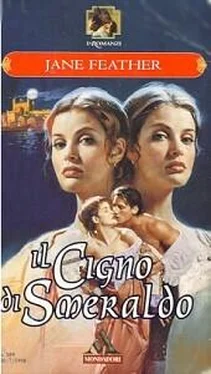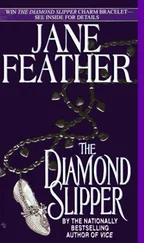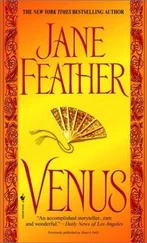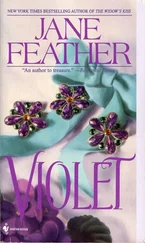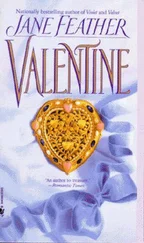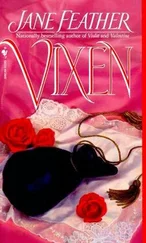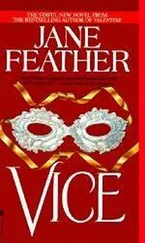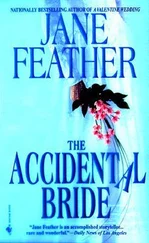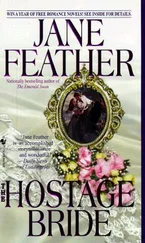Matters hadn't improved much once he'd been admitted to the royal-presence. King Henry had been a soldier from his fifteenth birthday and now, at thirty-eight, was a hard-bodied, passionate warrior who disdained creature comforts. His own quarters were barely warmed by a sullen brazier, his bed was a straw pallet on the cold ground. He and his advisors, still booted and spurred, huddled in thick riding cloaks.
The king had greeted Lord Harcourt with a courteous smile, but his sharp dark eyes were suspicious, his questions keen and pointed. He was a man who had learned always to see treachery in offers of friendship after the hideous massacre of Saint Bartholomew's Day, when at the age of nineteen he'd married Marguerite of Valois and thus unwittingly sprung the trap that had caused the deaths of thousands of his own people in the city that he was now coldly, deliberately, starving into submission.
But Gareth's credentials were impeccable. His own father had been at Henry's side at that ill-fated wedding. The duke d'Albard, Maude's father, had been one of Henry's closest friends and had lost his wife and baby in the massacre. The murdered wife had been a Harcourt before her marriage. So, after a carefully pointed interrogation, the earl of Harcourt was accepted as friend and bidden to share the king's frugal supper before he and Roissy discussed Lord Harcourt's proposal.
The wine was rough, the bread coarse, the meat heavily seasoned to disguise its rankness, but the famished citizens of Paris would have found it manna. Henry for his part appeared to find nothing at fault with the fare and had eaten heartily and drunk deep, his beaklike nose reddening slightly as the wine in the leather bottles diminished. Finally, he had wiped his thin mouth with the back of his hand, shaking bread crumbs loose from his beard, and demanded to see the portrait of Lady Maude. The king must judge whether the lady was worthy to be the wife of his dear Roissy. It was said with apparent jocularity, but there was more than a strand of seriousness beneath.
Gareth had produced the miniature of his young cousin. It was a good likeness, depicting Maude pale, blue-eyed, with her air of wan ethereal fragility that in many women passed for beauty. Her penetrating azure gaze from the pearl-encrusted frame bespoke the girl's deeply intense temperament. Her skin was very white, unhealthily so by Gareth's lights. Her long swanlike neck was one of her greatest claims to beauty and it was accentuated in the portrait by a turquoise pendant.
Henry had taken the miniature and his thick eyebrows had drawn together abruptly. He glanced toward Roissy, an arrested expression in his keen eyes.
"My lord? Is there something wrong?" Roissy had looked alarmed, craning his neck to see the portrait that the king still held on the palm of his hand.
"No. No, nothing at all. The lady is quite lovely." Henry's voice had been curiously abstracted as he tapped the miniature with a callused fingertip. "How tragic that she should have grown up motherless. I remember Elena so clearly." He glanced up at Gareth. "You were close to your cousin, I believe."
Gareth merely nodded. Elena had been some years older than he, but they had had a close rapport and her murder had grieved him sorely.
Henry sucked in his bottom lip as he continued to stare down at Maude's portrait. "It would be an impeccable connection."
"Yes, indeed, my lord." Roissy sounded a little impatient. "The d'Albards and the Roissys have long been allied. And the Harcourts, also." He had thrown a quick smile at the earl of Harcourt.
"Yes, yes… a fine connection for a Roissy," Henry said distantly. "But no bad alliance for a king… eh?" He had looked around the table at that with a grin that made him appear younger than his years. "I like the look of this cousin of yours, my lord Harcourt. And I am in sore need of a Protestant wife."
There was a stunned silence, then Roissy had said, "But my lord king has a wife already."
Henry had laughed. "A Catholic wife, yes. Marguerite and I are friends. We have been separated for years. She has her lovers, I have mine. She will agree to a divorce whenever I ask it of her." He had turned his bright-eyed gaze on Gareth. "I will see your ward for myself, Harcourt. And if I find her as pleasing as her portrait, then I am afraid Roissy must look elsewhere for a wife."
There had been objections of course. The king couldn't leave the siege of Paris and travel to England at this juncture. But Henry was determined. His generals could continue the work for a few months without him. Starving a city into submission required no great tactical maneuvers or bloody battles. He would slip away from the field, would travel incognito-a French nobleman visiting Queen Elizabeth's court-and he would enjoy the hospitality of the earl of Harcourt and make the acquaintance of the lovely Lady Maude. And if he believed that he and she would make a suitable match, then he would do his wooing for himself.
The medieval serpentine bracelet with its emerald swan charm had belonged to Maude's mother. It was a unique and most precious piece of jewelry. How it had come into the king's possession, Gareth didn't know. He presumed Francis d'Albard had given it to his king at some point and Henry now considered it a most appropriate gift as earnest of his intent to woo d'Albard's daughter.
And so it had come about that Gareth now carried in his doublet the proposal that would send Imogen into transports of delight and panic. And God alone knew what it would do to Maude.
He passed through the broken gateway in the crumbling town wall. The town was well protected by the castle on the clifftop and the three forts built along the seafront by Elizabeth's father, Henry VIII, and had long given up maintaining its walls-they were too susceptible to a cannonade from the water to make it worthwhile anyway. He turned toward Chapel Street and the Adam and Eve Inn, where he could bespeak a bed to himself that night and be reasonably sure of getting one. Innkeepers were notorious for promising such precious privacy and then inflicting unwanted bedfellows on their patrons at an hour of the night when a man could do nothing about it.
He had ducked his head beneath the low lintel of the inn, when the unmistakable sounds of a hue and cry surged around the corner from Snargate Street. He stepped back to the narrow dirt-packed lane just as a blur of orange flashed past. The pursuing crowd bellowing "Stop, thief." would have knocked him from his feet if he hadn't jumped back into the doorway.
Ordinarily, the prospect of mob justice wouldn't have concerned Gareth in the least. Beatings and stonings were a fact of life when the populace took the law into their own hands with one of their own, and no one gave them a second thought. It was more than likely that the girl was a thief. The life she led tended to engender a rather relaxed attitude to other people's property.
He turned again to the promise of ale and a pipe of tobacco in the tavern's taproom, and then hesitated. Suppose she wasn't guilty? If the hue and cry caught her, innocence wouldn't save her from their rough justice. They wouldn't stop to ask questions. And even if she was guilty, the thought of her being subjected to a mauling mob revolted him.
He turned back to the street and walked briskly in the wake of the hue and cry. Judging by the continued baying they hadn't caught her yet.
Miranda, a gibbering Chip clinging to her neck, dived into a narrow gap between two houses. It was so small a space that, even as slight as she was, she had to stand sideways, pressed between the two walls, barely able to breathe. Judging by the cesspit stench, the space was used as a dump for household garbage and human waste and she found it easier to hold her breath anyway.
Читать дальше
